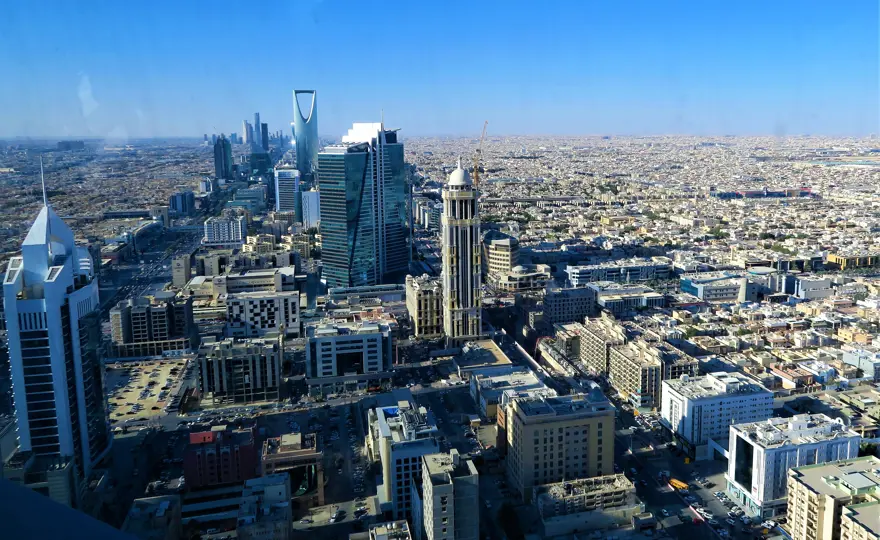ClientEarth Communications
25th August 2023


Human rights experts from the United Nations have issued a warning to Saudi Aramco and its banks over the company’s enormous contribution to the climate crisis. Saudi Aramco is the biggest oil and gas company in the world.
Their warning comes after ClientEarth filed a legal complaint accusing Aramco of committing the largest ever climate-related breach of human rights law by a business.
Far from having a plan to move towards net zero, Aramco continues to pursue fossil fuel production and even has plans to explore for and develop more reserves. This means it will be knowingly worsening climate-related human rights impacts in Saudi Arabia and across the world. It is already the biggest corporate emitter of greenhouse gases – and this contribution is set to continue.
Oil and gas companies fuel catastrophic climate change, which will expose billions of people to water stress, heatwaves, and food shortages as global temperatures rise. Extreme weather events like wildfires, droughts, flooding and storms are becoming more and more frequent, causing significant harm to people around the world and violating their human rights.
Recent months have seen unprecedented global heatwaves and uninhabitable heat extremes, with temperatures in Saudi Arabia itself soaring to above 50 degrees Celsius. In the Middle East, such extremes are forecast to become the norm, with large numbers of heat-related deaths, unless emissions are brought down rapidly.
By failing to address its role as the single biggest corporate emitter of greenhouse gases across the planet, Aramco is committing a huge violation of human rights law. People in every country, on every continent are affected by climate change, which is fuelled by Aramco’s actions.
The UN also warned banks and financiers that enable Aramco’s business that their involvement in the financing of Saudi Aramco’s activities could be in violation of international human rights law and standards.
These companies include JPMorgan Chase, Citi and HSBC. While many of the banks have their own climate pledges, none of them have publicly acknowledged the climate-related human rights impacts involved in their business relationship with Aramco. They have a legal responsibility to act meaningfully on Aramco’s role in climate human rights harms, by exerting any leverage they have to improve its plans or moving to exit deals with the company.
Aramco reported in March 2023 that its annual profits had soared to a record $161bn profit in 2022, and since 2019 has raised more than $70bn through equity, bonds and bank loans.
Despite refusing to align with the net zero transition, Aramco is pushing out adverts promoting the ‘sustainability’ of its business. It even claims to have a net zero goal, but the plan to reach this target ignores the vast majority of its activities. In reality, they invest a tiny amount into renewables and this is used to power the expansion of its oil and gas projects. We believe this constitutes harmful greenwashing, and we’ve analysed Aramco’s misleading ads before as part of our Greenwashing Files.
The UN acknowledged the negative impacts that misinformation and disinformation on climate change can have on efforts to tackle the crisis —as well as on the wider enjoyment of all human rights.
It said businesses should refrain from public information campaigns based on inaccurate, misleading, and unfounded assertions that harm the ability of governments and the public to make informed decisions pertaining to climate change.
In reality, Aramco is exacerbating the damage that climate change is having on people’s lives rather than working to address it.
The UN warning sets an important international legal precedent clarifying how human rights law addresses the largest polluters driving the climate crisis. That precedent can now be used to hold corporate polluters accountable in courtrooms around the world.
For more on the responses given to the UN warning by Aramco and the banks, see our press release here.
To address its human rights impacts, Aramco needs a transition plan that aligns with the Paris Agreement. It must significantly cut its oil and gas production with a view to halving its emissions by 2030. It must make way for renewable energy and look to the opportunities of a transition away from polluting fossil fuels, rather than greenwashing to obstruct and delay a rapid and fair transition.
Financial institutions who support the company also need to consider whether this support is in line with their own human rights responsibilities. If not, then they should stop doing business with Aramco.